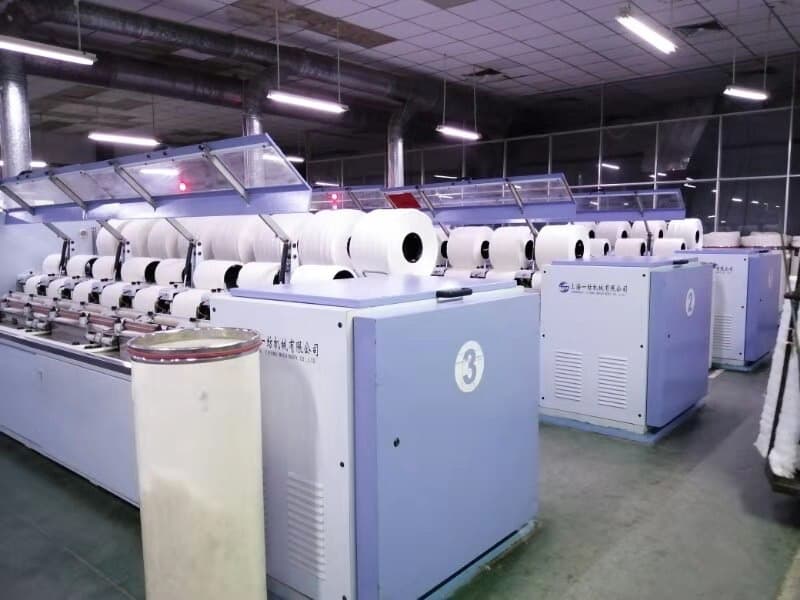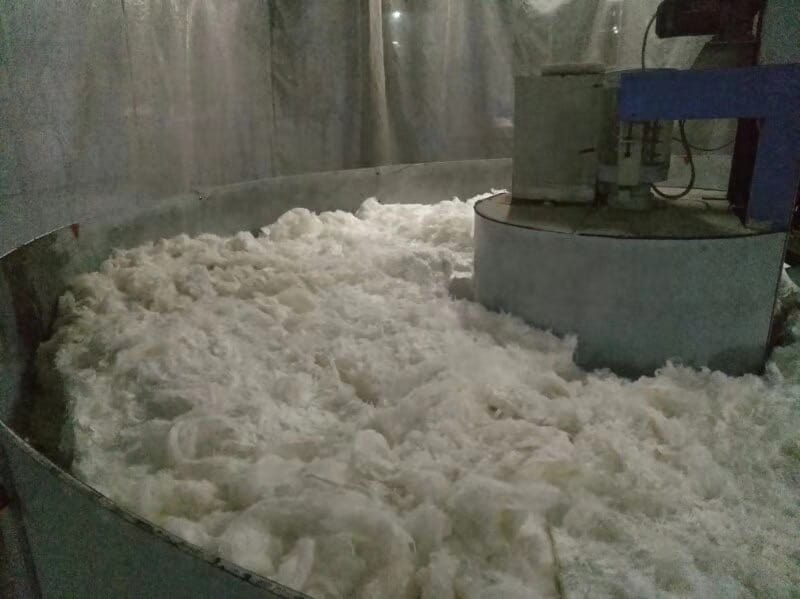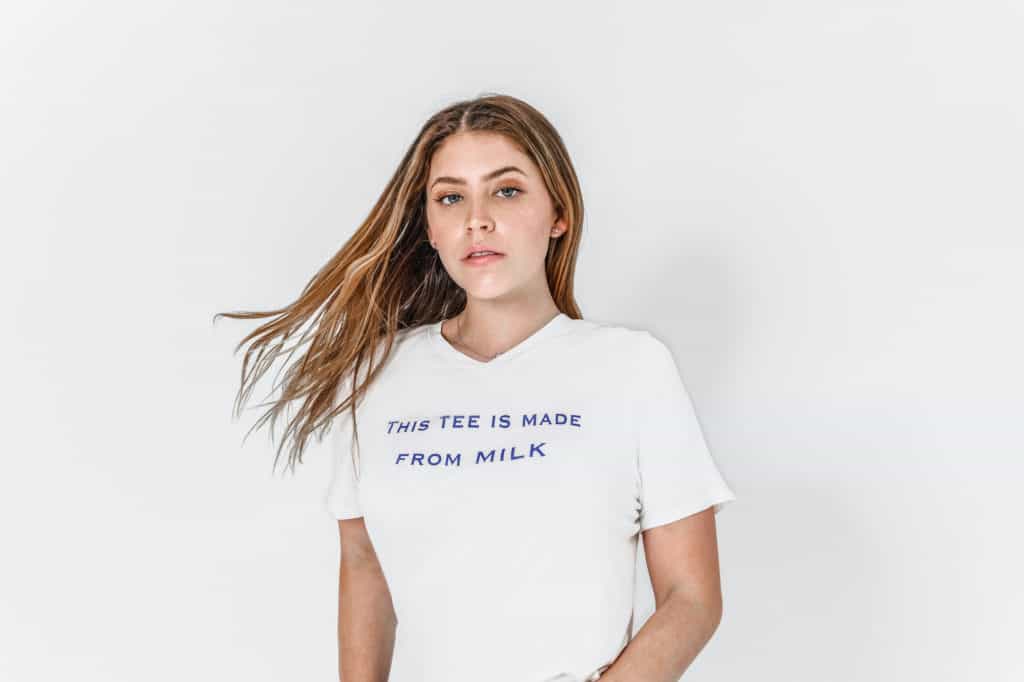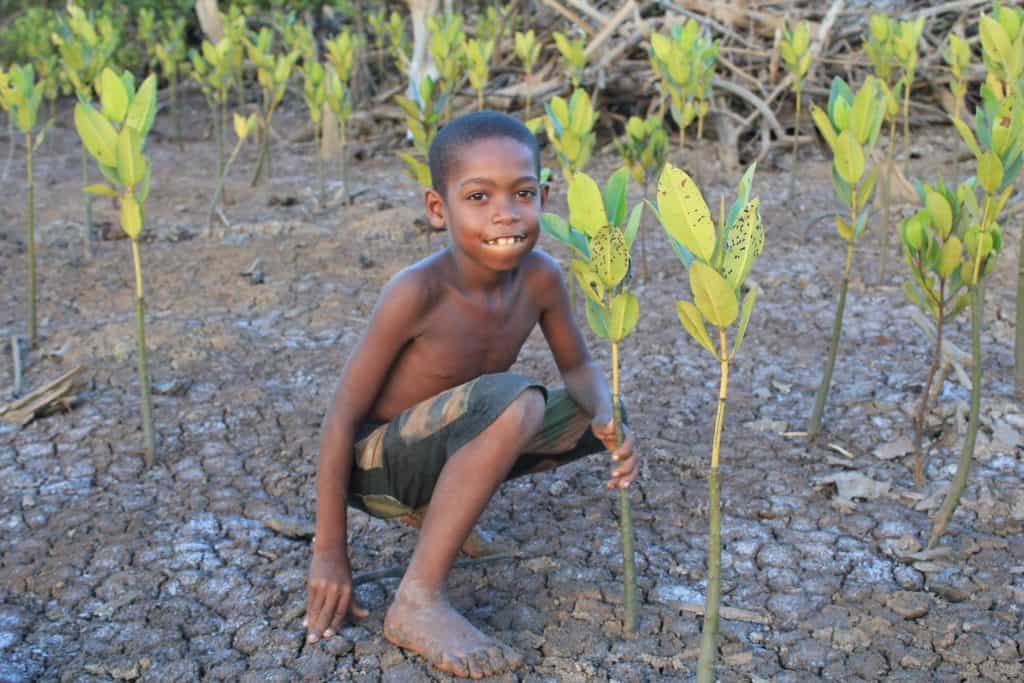In episode 57 of the Disruptors for GOOD podcast, we speak with Robert Luo, Founder of Mi Terro, about his biotech company that creates protein fiber from milk waste, with the potential to revolutionize two of the largest industries in the world.
Listen to more Causeartist podcasts here.
According to the Food Agricultural Organization (FAO), 20% of dairy products go to waste every year, making dairy one of the largest contributors to food waste, and a significant source of carbon emissions.
Others estimate this figure to be as high as 30%, if further inefficiencies, such as flooding foreign markets, using milk as animal feed and overconsumption, are taken into account.
Much of the waste occurs before the produce even reaches the consumer – during the production process at the farm, or while the milk is being distributed and exported abroad. Developing countries also often grapple with proper storage and transportation, causing unnecessary spoilage.
The coronavirus pandemic has further exacerbated dairy wastage, as farmers struggle to get their produce to market due to supply chain disruptions, including shortage in truck drivers, and are forced to dump their milk because of its short shelf life.
Upcycling excess milk into sustainable fiber
Robert Luo first came face to face with the gargantuan issue of dairy waste during a visit to his uncle’s dairy farm in China where he discovered buckets and buckets of spoiled milk.
He thus founded Mi Terro, a biotechnology company that reengineers leftover milk into sustainable fibers that can replace plastic in the fashion, medical and packaging industries.

Mi Terro rescues excess milk from its dairy farm partners, skims it to remove fats before dewatering it to turn the liquid into powdered milk. It is then dissolved once again and purified to remove the bacteria, or the so-called ‘bad’ casein, from expired or spoiled milk. Casein makes up 80% of milk protein.
Once the ‘bad’ casein is removed, the remainder protein is spun through a spinneret to solidify it into fiber. The fibers are then stretched and spun into yarn for clothes manufacturing, but, according to Luo, can be also used in bed linen, food packaging, face masks, or toilet paper.

The first version of the milk-to-clothing process took about two months to complete, with one glass of milk making up five T-shirts. The company is currently developing the second version of its milk waste fiber, which they claim requires 60% less water than organic cotton, and is 100% biodegradable.
Repurposing milk waste into clothes is not Mi Terro’s first foray into sustainable fashion – the team has previously designed a travel bag made from ocean plastic and cork.
Transforming the fashion and food industries
Luo considers costs and material performance as the two key challenges faced by sustainable clothing brands.
Raw materials touted as more sustainable, such as bamboo or Tencel, are still more expensive to produce compared to petroleum-based fibers or cotton. In addition, production oil-based or petrochemical textiles are sweat-absorbent, long-lasting, and have a stretchiness that eco-friendly fabrics often don’t.
The responsible start-up claims to have addressed these issues by producing a fiber that’s moisture-wicking, durable, and cheaper to produce compared to organic cotton.

Mi Terro currently sells its milk waste T-shirts online, and is in discussions with apparel brands looking to replace fossil fuel-derived polyester or acrylic with more sustainable raw materials, including Nike, H&M, Ralph Lauren or Richemont.
Once patented, the conscious brand plans to license its technology to agricultural plants and farmers.
“Our technology can apply to existing machines and factories, so there is no need to build an entirely new facility. We are taking existing food waste at food processing centers, and convert it into sustainable by-products onsite.”
Supporting reforestation and food donation programs

For every purchase, Mi Terro currently commits to planting 15 trees with charity Eden Reforestation Projects, and donates 20 free meals through food bank Operation Food Search to children in need.
Luo and his team plan to eventually reinvest 1% of their profit to charities tackling food waste through 1% for the Planet, a membership initiative that enables businesses to donate a percentage of their gross sales to environmental non-profits that are rigorously vetted on their planetary impact.
No to recycled plastic
Luo also advocates against the use of recycled plastic in manufacturing processes.
“Most of the sustainable fashion brands publicize their efforts to use recycled polyester (PET). However, recycled polyester creates microplastic that does more harm to the environment than virgin plastic. We should replace plastic entirely, not produce more, or try to reuse it more and more.”
Reducing global food waste by one-fifth
The environmental venture set out with the ambitious mission of reducing global food waste by 20%, and planting 1 billion trees within the course of the next decade. They also aim to phase out plastic packaging film within the next 20 years.
“We are redefining the circular economy in which everything begins with food waste, and ends as recyclable or biodegradable. Through our technologies, we are replacing petroleum-based materials with protein-based materials made from food waste.”








